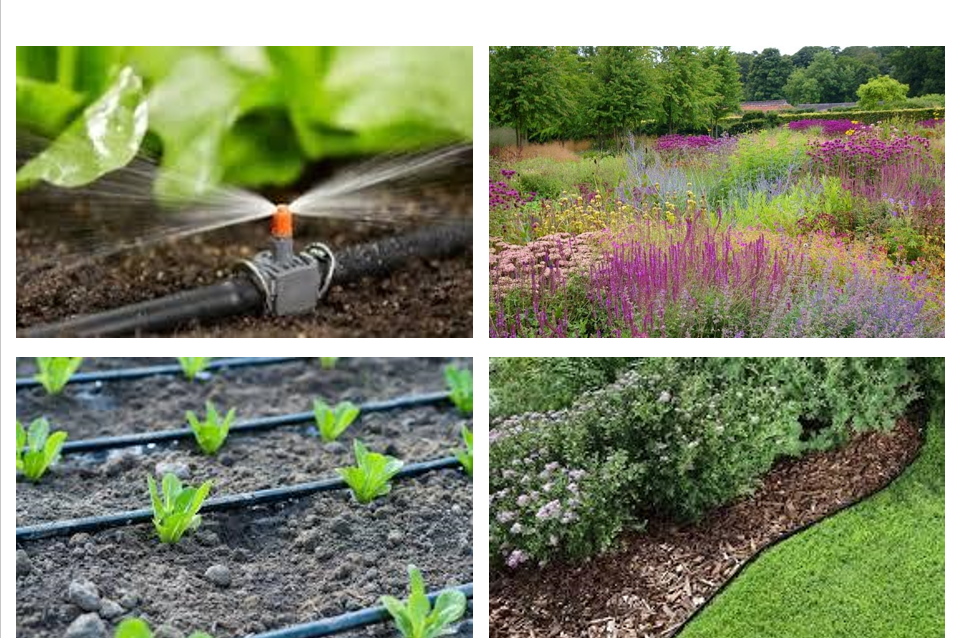
The environmental management of the open territories concerns only hotels, accommodations and restaurants with relatively large open space, where there is a garden, lawn and possibly a pool or fountain. Gardens and lawns require regular maintenance and irrigation, which increases water use and related costs.
Interestingly, in Europe and other developed countries, there is a trend for quitting perfect lawns in gardens and parks, which are being replaced by natural landscapes or eco-gardens.
Ecogarden is a direction in garden design. It is based on well-chosen ecological compositions that imitate the natural landscape of the area where the garden plot is located. The canons of the ecological approach suggest that the most natural connections between plants should be built in the garden. To select plants, it is desirable to study in detail the flora located near the site and try to build a landscape that coincides with this nature. The local flora is less demanding to care for and better adapted to the local climate and conditions. This will help save on care, unlike exotic plants that require extensive maintenance. Also, local flora often do not require regular watering.
In general, the essence of the ecological style is that all plantings should be grouped according to their natural niches: sun-loving plants should not fall into the shade, moisture-loving plants should not fall into dry places, and so on. By correctly fulfilling the requirements for light, acidity, soil composition and humidity, you will achieve the effect of naturalness in an ecological garden. After all, the plants will look great without unnecessary intervention on your part: they do not need top dressing, alkalization, wind protection, and so on [1].
The ecogarden also involves the creation of lush green hedges, in which small birds and beneficial insects could find shelter. They will benefit and delight your guests. Growing spicy, medicinal and aromatic herbs will allow them to be used in the household, in the kitchen, and also offered to guests. Creepers and ivies that wrap around the building and gazebos will not only bring aesthetic pleasure, but also create coolness and reduce the need for air conditioners.
In the conditions of Kyrgyzstan, watering may still be necessary in the garden in the summer. Implement rainwater harvesting and greywater management systems to reduce water use . Pay attention to the possibility of creating an constructed wetlands, which will be both a natural wastewater treatment system and a landscape solution.
Mulching will help reduce irrigation costs , which significantly reduces the evaporation of moisture from the soil and, as a result, reduces the need for frequent watering.
Drip irrigation has been actively introduced in Kyrgyzstan in recent years. With this method, water is supplied directly to the root zone of the grown plants in regulated small portions using dropper dispensers. This results in significant savings in water and other resources (fertilizers, labor, energy and pipelines).
Controlled and efficient irrigation systems are a more expensive technology, but they create favorable conditions for the development of plants, eliminates the long routine of daily garden and lawn care and, being a “smart” system, minimizes the need for intervention. By controlling soil moisture, it will only irrigate when needed and conserve water consumption.